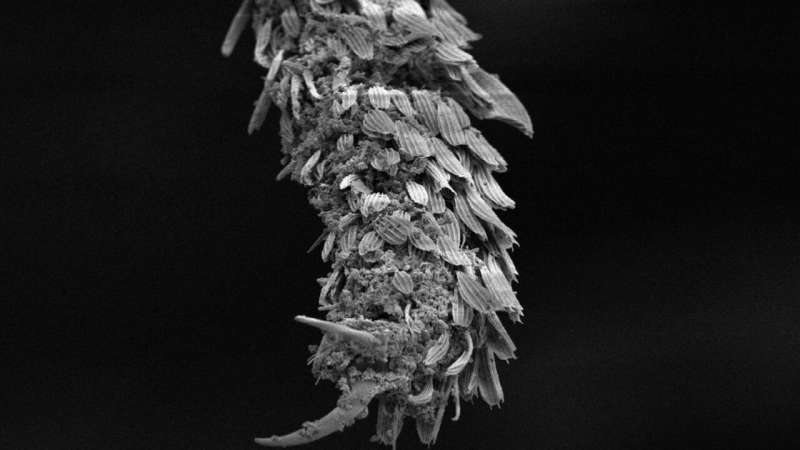Volcanic glass spray shows promise in controlling mosquitoes

An indoor residual spray made by combining a type of volcanic glass with water showed effective control of mosquitoes that carry malaria, according to a new study. The findings could be useful in reducing disease-carrying mosquito populations—and the risk of malaria—in Africa.
Malaria, an infectious disease transmitted by mosquitoes, annually kills some 400,000 people in Africa. The use of insecticide-treated bed nets and indoor residual sprays are the most common and effective methods of reducing mosquito populations in Africa. But mosquitoes are becoming increasingly resistant to the commonly used insecticides such as pyrethroids, so the need for alternative safe chemistry to use in controlling mosquitoes is important.
The volcanic glass material used in this new intervention is perlite, an industrial mineral most frequently used in building materials and in gardens as a soil additive. The tested insecticide created from perlite, called Imergard WP, can be applied to interior walls and ceilings—and perhaps even inside roofs—as an indoor residual spray. The spray contains no additional chemicals, is not toxic to mammals and will be cost effective. Early results show that mosquitoes do not appear to have resistance to the perlite spray.
In the study, North Carolina State University entomologists worked with the Innovative Vector Control Consortium (IVCC) based at the Liverpool School of Tropical Medicine and Imerys Filtration Minerals Inc. to test Imergard WP. Researchers used the spray in experimental huts in the Republic of Benin (West Africa) to test the effects of the spray on both wild and more susceptible strains of Anopheles gambiae mosquitoes, the primary malaria vector in sub-Saharan Africa.
Researchers used four different tests to verify the efficacy of Imergard WP. Control study huts had no mosquito-prevention spray. In the second group hut walls were coated with a common pyrethroid. Hut walls were sprayed with Imergard WP in the third group, while in the fourth group hut walls were sprayed with a mixture of Imergard WP and the common pyrethroid.
Huts with walls treated with Imergard WP, with and without the pyrethroid, showed the largest mosquito mortality rates. Results showed mortality rates of mosquitos alighting on Imergard WP-treated walls were greater than 80% up to five months after treatments, and 78% at six months. The treatments were effective against both susceptible and wild-type mosquitoes.
"The statically transferred perlite particles essentially dehydrate the mosquito," said Mike Roe, William Neal Reynolds Distinguished Professor of Entomology at NC State and the corresponding author of the paper. "Many die within a few hours of contact with the treated surface. Mosquitoes are not repelled from a treated surface because there is no olfactory mechanism to smell rock."
Huts sprayed with only the common pesticide had mosquito mortality rates of around 40 to 45% over five months, with those rates dropping to 25% in month six of the study.
"The processing of perlite as an insecticide is novel," said David Stewart, commercial development manager for Imerys, the company that created Imergard WP, and co-author of the paper. "This material is not a silver bullet but a new tool that can be considered as part of an insect vector management program."
More information: Jean M. Deguenon et al, ImergardTMWP: A Non-Chemical Alternative for an Indoor Residual Spray, Effective against Pyrethroid-Resistant Anopheles gambiae (s.l.) in Africa, Insects (2020). DOI: 10.3390/insects11050322
Provided by North Carolina State University





















